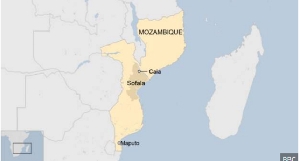- Home - News
- TWI News | TV
- Polls
- Year In Review
- News Archive
- Crime & Punishment
- Politics
- Regional
- Editorial
- Health
- Ghanaians Abroad
- Tabloid
- Africa
- Religion
- Election 2020
- Coronavirus
- News Videos | TV
- Photo Archives
- News Headlines
- Press Release
General News of Thursday, 8 August 2013
Source: radioxyzonline
Voting not a God-given right – Law Prof 'schools' Lithur
Ghanaian Law Professor, H. Kwasi Prempeh, has differed with the president’s lead counsel’s assertion that the constitutional right to vote is “fundamental”, “inalienable” and “God-given".
The Professor of Law at Seton Hall University Law School, Newark, New Jersey- U.S.A., where he teaches courses in constitutional law, comparative constitutional design and corporate law among others, wrote on his facebook wall that: “…The right to vote is, in Ghana as everywhere else, a right that emanates from "positive law"--in this case, the Constitution”.
The President’s Lawyer, Tony Lithur, made the assertion when he delivered his address to Ghana's Supreme Court on Wednesday in connection with an ongoing election petition trial which is in its dying embers.
He intended using that argument to counter the petitioners’ attempt to convince the nine-member Bench to nullify a huge chunk of votes cast in the 2012 presidential elections which resulted in the country's Electoral Commission’s declaration of President John Mahama as winner.
However, Prof. Prempeh, a National Endowment for Democracy 2011 Reagan-Fascell Democracy Fellow, who is also a founding member of the Governing Board of the Centre for Democratic Development-Ghana, explained that: “The right to vote is not a natural right; it does not come from any god or God. It is a man-made right, as is the form of government (democracy) with which it is associated”.
According to him, “being a right that emanates from positive law, its content and contours must be determined by reference to its source--the Constitution”.
“I don't know where Mr. Lithur got this idea that the right to vote is a God-given right,” he wondered.
He said: “God has been rather forcibly and gratuitously drafted into service in this presidential petition case,” adding that: “I hope He doesn't make another appearance in the final judgment of the Court”.










